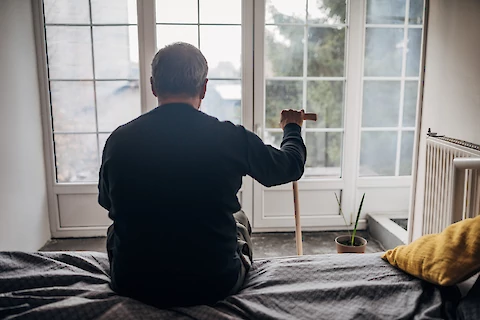
Understanding the unique challenges faced by seniors with Alzheimer's and other forms of dementia is crucial for their caregivers. One such challenge is a phenomenon known as sundowning. When the sun sets, seniors may experience increased confusion and agitation, often leading to distress both for them and their caregivers.
What Is Sundowning?
Sundowning is a perplexing phenomenon, predominantly observed in seniors with Alzheimer's and other forms of dementia. Essentially, it refers to a state of increased confusion, agitation, and even restlessness that becomes noticeable in the late afternoon and evening, around sunset, hence the name. Some studies suggest sundowning affects nearly 20% of individuals with Alzheimer's, indicating its high prevalence.
Symptoms and Signs of Sundowning
You can recognize sundowning when you know the signs. These include:
Confusion
The most apparent sign of sundowning is increased confusion as twilight falls. Seniors who are usually calm and coherent during the day may begin to exhibit bewilderment, difficulty in understanding what's happening around them, or even an inability to recognize familiar people.
Agitation
Agitation is another common symptom. Seniors may become increasingly anxious, irritable, or upset in the late afternoon and evening. Some might progress to an unusually restive or demanding state, showing restlessness and an inability to sit still.
Mood Shifts
While these are the most common signs, sundowning can manifest in other ways, such as sudden mood swings, fear, suspicion, and even hallucinations in some cases. Therefore, it's important to be mindful of any unusual behavior that follows a consistent pattern aligned with the setting of the sun.
Managing Sundowning Symptoms at Home
Once you identify the signs of sundowning, there are several steps you can take to manage these symptoms within the home environment. Here are a few suggestions:
Calming Environment
Creating a comfortable, quiet, and familiar environment can significantly help reduce confusion and agitation. This could mean curtailing background noise, ensuring ample lighting to avoid shadows that could cause fear, and keeping known personal items in sight.
Stick to Your Schedule
Maintaining a regular schedule is another effective strategy. A routine gives a sense of security and familiarity to a senior with Alzheimer's or dementia, minimizing the potential for confusion. This includes regular meal times, bedtime, and wake-up times.
Seek Professional Help
Despite your best efforts, there may be times when managing sundowning becomes challenging. In such instances, don't hesitate to seek professional help. It's important to remember that you're not alone in this journey.
Senior Helpers Hillsborough County Helps Seniors Navigate Sundowning
Understanding and effectively managing sundowning can significantly improve the quality of life for seniors with Alzheimer's and dementia and their caregivers in Sun City Center, Riverview, Brandon, Valrico, and Tampa. It's essential to be aware of the symptoms, maintain a comfortable environment, adhere to a regular schedule, and engage the support of professionals when needed. Remember, Senior Helpers Hillsborough County is just a call away, ready to lend a helping hand in making the twilight years more comfortable. Reach out to us today.